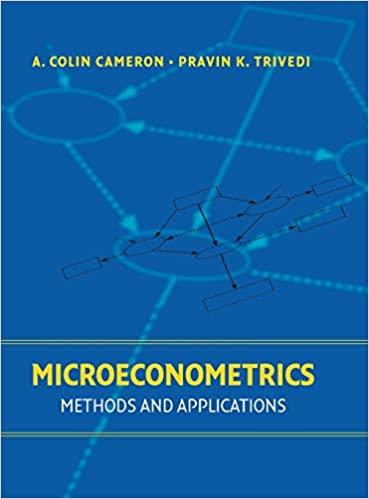Consider a latent variable modeled by (boldsymbol{y}_{i}^{*}=mathbf{x}_{i}^{prime} boldsymbol{beta}+varepsilon_{i}), with (varepsilon_{i} sim mathcal{N}[0,1]). Suppose we observe only (y_{i}=1)
Question:
Consider a latent variable modeled by \(\boldsymbol{y}_{i}^{*}=\mathbf{x}_{i}^{\prime} \boldsymbol{\beta}+\varepsilon_{i}\), with \(\varepsilon_{i} \sim \mathcal{N}[0,1]\). Suppose we observe only \(y_{i}=1\) if \(y_{i}^{*} (a) Find \(\operatorname{Pr}\left[y_{i}=1 \mid \mathbf{x}_{i}\right]\). [Hint: Note that this differs from the standard case both due to presence of \(U_{i}\) and because the equalities are reversed with \(y_{i}=1\) if \(y_{i}^{*} (b) Provide details on an estimation method to consistently estimate \(\beta\). (c) Suppose you estimate this model and find that the third regressor \(x_{3 i}\) has estimated coefficient \(\widehat{\beta}_{3}=0.2\). Provide a meaningful interpretation of \(\widehat{\beta}_{3}\).
Step by Step Answer:

Microeconometrics Methods And Applications
ISBN: 9780521848053
1st Edition
Authors: A.Colin Cameron, Pravin K. Trivedi





